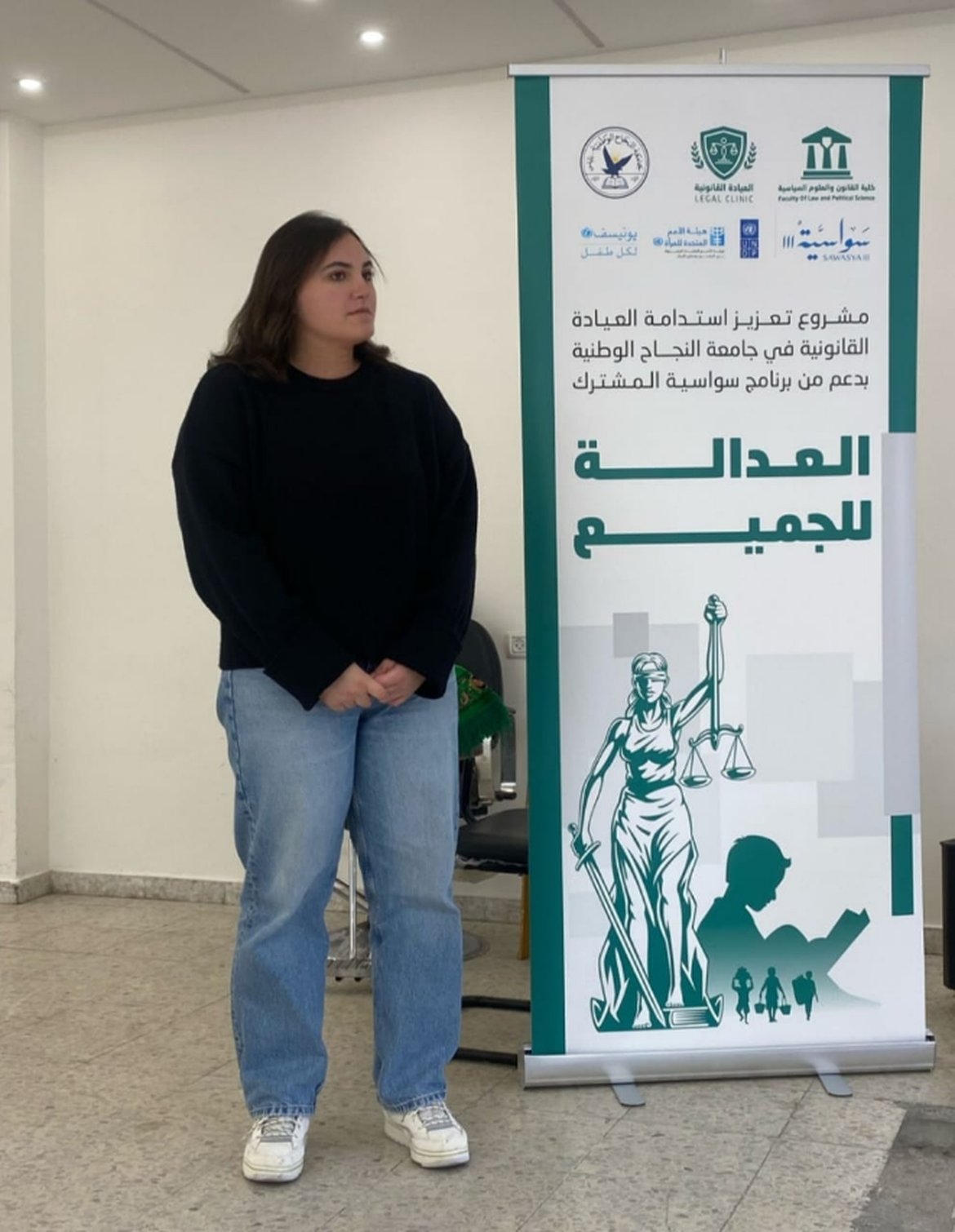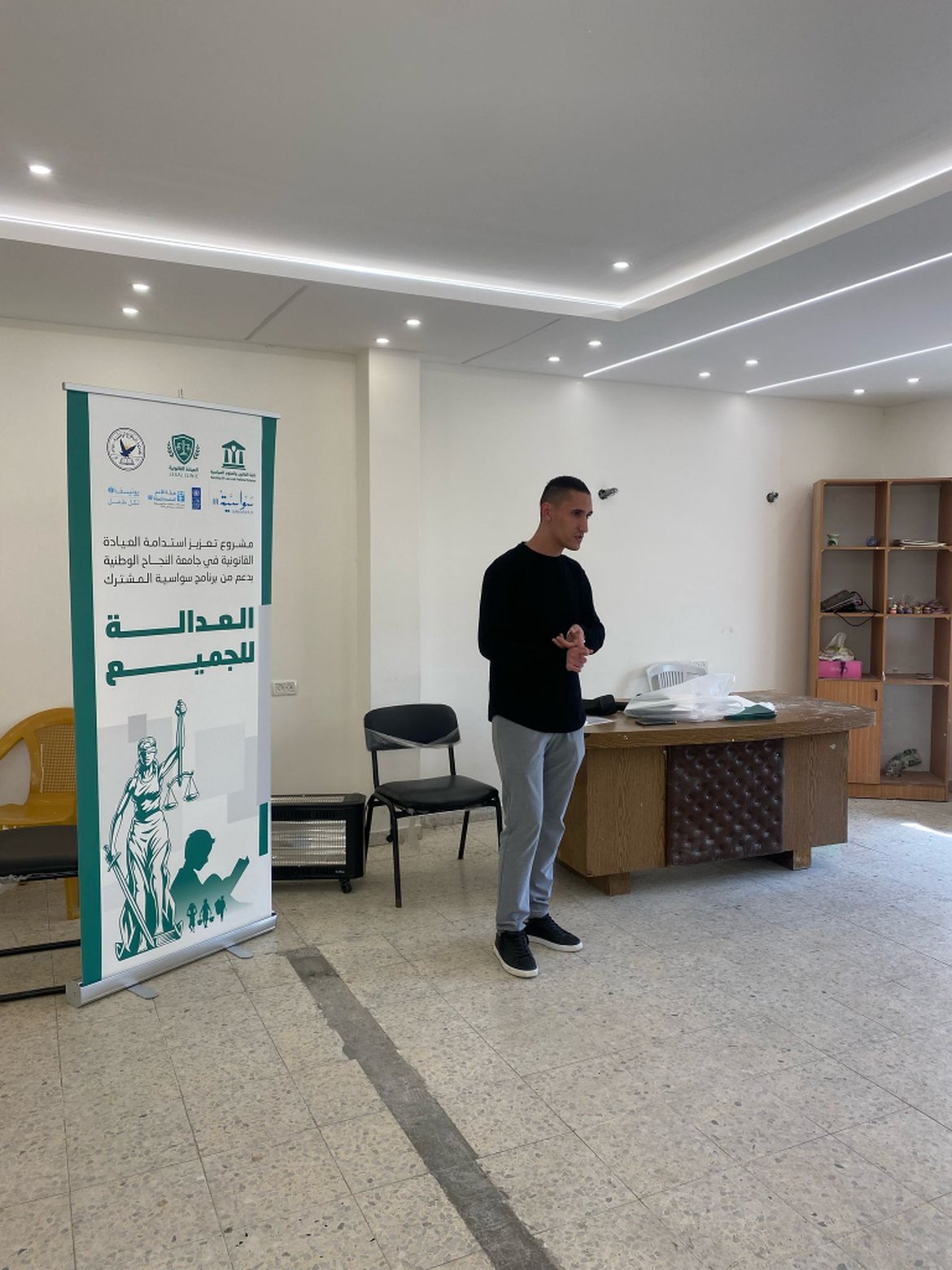As part of its ongoing efforts to enhance legal awareness and provide community support, the Legal Clinic at the Faculty of Law and Political Science at An-Najah National University organized a legal and social awareness campaign on Monday, March 10, 2025, at the Women's Activity Center in the Old Askar Refugee Camp. This campaign aligns with the clinic’s commitment to spreading legal knowledge and providing legal guidance to strengthen individuals' awareness of their rights and responsibilities. The campaign was led by legal assistants Ms. Alaa Afana and Mr. Jalal Dweikat and covered essential topics related to marriage and inheritance, as well as their impact on personal rights and legal obligations.
The campaign addressed the topic of marriage contracts, explaining the fundamental elements of a valid contract, including offer and acceptance, and the legal conditions necessary to ensure the validity of the marriage. The discussion also covered the legal consequences of marriage contracts, such as the obligation of the dowry, determination of child lineage, inheritance rights between spouses, and financial support rights. The participants were introduced to the distinctions between valid, voidable, and invalid contracts, as well as the legal implications of each on the rights and obligations of the parties involved. The audience engaged with this topic through questions and discussions about practical cases, which helped deepen their understanding of the legal procedures followed in Sharia courts.

The campaign also focused on inheritance laws, providing a comprehensive explanation of the concept of inheritance under Islamic law and Palestinian legislation. Key conditions for inheritance eligibility were outlined, including the death of the deceased, the heir’s survival, and the absence of legal impediments to inheritance. The discussion also covered the reasons for inheritance, including marriage and kinship, with a particular emphasis on women’s inheritance rights and the role of laws in ensuring they receive their rightful shares. Additionally, the session addressed factors that prevent inheritance, such as murder and religious differences, as well as the legal steps required before distributing the estate, from issuing a death certificate and an inheritance declaration to the methods of inheritance distribution and property transfer procedures. The distinction between amicable and judicial division of inheritance was clarified, highlighting the importance of each in resolving disputes that may arise among heirs.
This campaign aligns with the Legal Clinic’s commitment to advancing the Sustainable Development Goals (SDGs). It contributes to SDG 4, which promotes quality education, by fostering legal awareness and empowering individuals with knowledge of their rights and responsibilities. Additionally, it supports SDG 5, which focuses on gender equality, by shedding light on women’s inheritance rights and ensuring they are not subjected to discrimination in property distribution. Furthermore, the campaign reinforces SDG 16, which aims to build strong institutions and promote the rule of law by legally empowering individuals and fostering a culture of justice within the community.
The campaign received significant engagement from participants, who emphasized the importance of the discussed topics and the need for similar initiatives that help raise legal awareness in society. This initiative reflects the Legal Clinic’s dedication to enhancing practical legal education and supporting diverse community groups by providing high-quality legal services. These efforts are part of the Legal Clinic Sustainability Project, implemented in partnership with the Sawasiya III Program, the United Nations Development Program (UNDP), UN Women, and UNICEF.

عدد القراءات: 43
